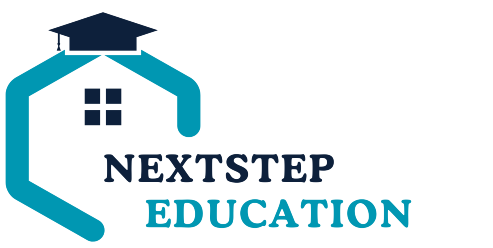The world of work has changed forever. What was once considered a temporary solution during the global pandemic has now become a long-term reality—remote work is here to stay. Across industries, companies are embracing flexible work arrangements, and professionals are seizing opportunities to build thriving careers from the comfort of their homes or co-working spaces. This shift has opened doors for talent worldwide, breaking geographical barriers and creating countless career opportunities.
Whether you’re a recent graduate, a mid-career professional, or someone seeking a fresh start, building a career without an office is no longer just a trend—it’s a powerful career choice. In this guide, we’ll explore the future of remote work, top remote career options, essential skills, tools, and actionable strategies to help you succeed in this evolving digital workplace.
Why Remote Work Is the Future
Remote work is not just a passing trend; it represents a fundamental transformation in the way we think about jobs and career growth. According to studies, more than 70% of employees globally prefer hybrid or fully remote roles, and companies are responding by shifting to remote-first models.
There are several reasons behind this shift:
-
Technology-Driven Growth: Cloud computing, video conferencing tools, and project management platforms have made seamless collaboration possible from anywhere in the world.
-
Global Talent Access: Companies can now hire top talent regardless of location, leading to more diversity and opportunities for professionals worldwide.
-
Cost Efficiency: Businesses save on office space and infrastructure costs, while employees save time and money by avoiding long commutes.
-
Rise of AI and Automation: Artificial Intelligence tools are simplifying workflows, enabling remote professionals to work smarter, not harder.
Remote-first companies like GitLab, Automattic, and Zapier have proven that productivity and innovation thrive in a remote setting. As more businesses adopt these models, building a location-independent career has never been easier or more rewarding.
Benefits of a Remote Career
A remote career offers more than just the freedom to work from your favorite spot; it’s a lifestyle change that empowers professionals to achieve a better balance between work and personal life. Here’s why millions are choosing to go remote:
-
Work-Life Balance & Flexibility
Remote jobs allow you to design your schedule around your life, not the other way around. You can spend more time with family, pursue hobbies, and create a healthier daily routine. -
Global Job Opportunities
You’re no longer limited to local openings. Remote work connects you to international companies and high-paying clients worldwide, giving you access to a wider talent market. -
Time & Cost Savings
No daily commute means saving hours of travel time and reducing transportation expenses. This translates to more personal time and financial freedom. -
Increased Productivity
With fewer office distractions and more control over your environment, remote workers often report higher focus and output. -
Better Mental Health (When Managed Well)
Flexible schedules, autonomy, and less commuting stress can improve overall well-being—especially if paired with good work-life boundaries.
A remote career isn’t just a convenience—it’s a sustainable way to work and grow professionally, making it a highly attractive career choice for today’s workforce.
If you’re interested in digital marketing, start by exploring our curated lists of top institutes across India, including the best digital marketing courses in Delhi, Noida, and Gurgaon. These guides will help you choose the right training programs to launch or grow your remote career in marketing.
Top Remote Career Paths in 2025
Remote work has opened doors to countless opportunities across industries. With technology, automation, and global hiring trends shaping the future, here are some of the best career paths for remote professionals in 2025:
1. Digital Marketing Specialist
Digital marketing is one of the most in-demand remote-friendly careers. From SEO and content marketing to paid advertising and social media strategy, companies rely heavily on digital experts to grow their brands online.
2. Content Writer & SEO Specialist
Writers, bloggers, and SEO strategists are essential for brands looking to create engaging, search-optimized content. This career path offers flexibility, freelance opportunities, and excellent income potential.
3. Software Developer & Web Engineer
Software engineers have been working remotely for years, and the demand continues to rise. Whether it’s mobile apps, websites, or AI solutions, developers enjoy high-paying global opportunities.
4. Graphic Designer & UI/UX Specialist
Designers can work remotely using creative software to deliver branding, UI/UX, and product design solutions for companies worldwide.
5. Data Analyst & AI Specialist
With data driving business decisions, remote analysts and AI experts are highly sought after. They can work with organizations to analyze trends, build AI models, and guide business strategies.
6. Virtual Assistance & Customer Support
Businesses increasingly hire remote assistants to handle scheduling, communication, and client support—making this an excellent entry-level career path.
7. Online Educator & Coach
Online education is booming, and professionals who can teach languages, business skills, or technical skills are thriving in virtual classrooms.
Remote careers in these fields not only pay well but also provide freedom, flexibility, and global opportunities. By upskilling in one of these areas, you can future-proof your career.
Essential Skills for Thriving Remotely
Working remotely requires more than just technical expertise. To stand out and succeed in a virtual environment, professionals need a mix of soft and hard skills that enable productivity, communication, and growth. Here are the must-have skills for remote success:
1. Digital Communication & Collaboration
Remote work depends heavily on tools like Zoom, Slack, Microsoft Teams, and Google Workspace. Strong written and verbal communication skills are essential for staying connected and ensuring smooth teamwork.
2. Time Management & Self-Discipline
Without a traditional office structure, you’re responsible for managing your schedule and meeting deadlines. Tools like Trello, Notion, and Calendly can help boost productivity.
3. Adaptability & Problem-Solving
Remote work often involves working with diverse teams across different time zones. Being adaptable and solution-oriented makes you a valuable asset in any remote team.
4. Tech-Savviness & Cybersecurity Awareness
Remote professionals must be comfortable using project management tools, cloud software, and cybersecurity practices like using VPNs and strong passwords to protect sensitive information.
5. Networking & Personal Branding
Building a strong presence on LinkedIn, participating in online communities, and showcasing your skills through portfolios or certifications helps you stay competitive.
6. Continuous Learning & Upskilling
With industries evolving rapidly, remote workers must commit to lifelong learning. Taking online certifications and courses ensures you stay relevant and ahead in your field.
By mastering these skills, you’ll not only thrive in a remote environment but also position yourself as a top professional in your industry.
Data analytics, AI, and cloud computing roles are among the highest-paying jobs in India. With the right certifications and remote work tools, you can position yourself for a lucrative career without being tied to a traditional office.
Tools & Tech for Remote Professionals
The right tools can make or break your remote work experience. To stay productive, organized, and secure while working from anywhere, here are some essential tech tools every remote professional should know:
1. Project Management Tools
Platforms like Trello, Asana, and Monday.com help teams track tasks, assign responsibilities, and ensure deadlines are met—making collaboration seamless even across time zones.
2. Communication & Collaboration Tools
For real-time communication, Slack, Microsoft Teams, and Zoom are industry favorites. They enable smooth meetings, instant messaging, and file sharing.
3. Cloud Storage & File Sharing
With Google Drive, Dropbox, and OneDrive, teams can store and access files securely from anywhere, reducing dependency on local storage.
4. Productivity & Focus Apps
Apps like Notion, Evernote, and Todoist help you organize tasks and stay focused. Tools like Forest or Focus@Will can also improve concentration.
5. Cybersecurity Tools
Remote professionals must prioritize online safety. Using a VPN (NordVPN, ExpressVPN), a password manager like LastPass, and antivirus software ensures your work remains secure.
6. Automation & AI Tools
Platforms like Zapier and AI-driven tools (ChatGPT, Jasper, Grammarly) save time by automating workflows, writing, and research tasks.
Equipping yourself with the right technology stack not only boosts productivity but also ensures you can deliver high-quality work efficiently—no matter where you’re working from.
How to Build Your Career Without an Office
Building a strong, future-proof career doesn’t require a traditional office setting anymore. With remote opportunities growing across industries, anyone with the right mindset, skills, and strategy can thrive. Here’s a step-by-step guide to building your career remotely:
1. Invest in Skill Development
Remote professionals need specialized skills to stand out. Take online courses in areas like digital marketing, programming, design, data analysis, and communication. Platforms like Coursera, Udemy, and LinkedIn Learning offer affordable certifications that boost credibility.
2. Build a Strong Online Presence
Your resume is no longer enough. A well-optimized LinkedIn profile, personal website, or online portfolio showcases your expertise and attracts global opportunities.
3. Start Networking Virtually
Engage in professional communities on Slack, Discord, LinkedIn, and Reddit. Networking is essential for finding collaborations, freelance clients, or job openings.
4. Explore Freelance Platforms
Freelancing platforms like Upwork, Fiverr, Freelancer, and Toptal are excellent for building your portfolio, gaining clients, and earning globally.
5. Create a Dedicated Workspace
Even though you’re working from home, having a dedicated workspace improves productivity and mental focus. Invest in a comfortable chair, desk, and tech equipment.
6. Focus on Personal Branding
Whether through blogging, podcasts, or social media, consistently sharing insights about your field builds trust and attracts opportunities.
7. Stay Updated & Adaptable
Remote industries evolve rapidly. Keep upgrading your tech stack, learning new skills, and adapting to changes in your niche.
By following these strategies, you can create a thriving remote career that offers stability, financial growth, and global opportunities—all without stepping into a traditional office.
Challenges of Remote Work & How to Overcome Them
While remote work offers incredible freedom, it comes with challenges that professionals must address to succeed. Here are some common hurdles and practical solutions:
1. Isolation and Lack of Social Interaction
Remote work can feel lonely without daily interactions with colleagues. Studies show that remote workers often struggle with feelings of isolation.
Solution: Join virtual co-working spaces, professional communities like We Work Remotely, and schedule regular video calls to stay connected.
2. Difficulty Maintaining Work-Life Boundaries
Working from home can blur the line between personal and professional time, leading to burnout (Forbes).
Solution: Create a dedicated workspace, set work hours, and practice time-blocking to separate work from leisure.
3. Communication Gaps
Miscommunication is common when teams are spread across time zones. Without face-to-face interaction, misunderstandings can slow down projects (Buffer State of Remote Work Report).
Solution: Use clear communication tools like Slack, Microsoft Teams, and Loom videos. Regular check-ins help maintain alignment.
4. Career Growth Concerns
Some professionals worry about missing promotions or visibility while working remotely.
Solution: Document achievements, schedule one-on-ones with managers, and consistently showcase your impact on projects via reports and LinkedIn updates (LinkedIn Career Advice).
5. Technology and Security Issues
Remote teams rely heavily on technology, and a lack of cybersecurity can put sensitive information at risk (Cybersecurity & Infrastructure Security Agency).
Solution: Use VPNs, password managers, and cloud-based project management tools. Always enable two-factor authentication.
How NextStep Education Can Help
At NextStep Education, we understand that the future of work is remote, and building a career without an office requires the right skills, guidance, and opportunities. That’s why we offer resources designed to help students and professionals succeed in today’s digital workplace.
-
Career Counseling: Get expert guidance to choose the right remote-friendly career path.
-
Skill Development & Courses: Learn in-demand skills like digital marketing, data analytics, software development, and content creation—all of which are essential for remote careers.
-
🌍 Remote Career Opportunities: We regularly update information about top institutes and career options across India, helping you prepare for high-growth roles.
-
🤝 Personalized Guidance: Whether you’re a student after 12th or a working professional, our team helps you make smart career choices tailored for remote success.
Ready to future-proof your career? Start your journey today with NextStep Education and discover how you can build a thriving career without ever stepping into a traditional office.
Conclusion
Remote work is no longer a temporary trend—it’s a powerful movement reshaping careers and industries worldwide. With the right skills, tools, and mindset, anyone can build a successful career without ever stepping into a traditional office. Whether you’re looking to enter high-demand fields like digital marketing, data analytics, or software development, or simply seeking flexibility, the opportunities are endless.
The key to thriving remotely is continuous learning, personal branding, and networking. By taking charge of your career growth and leveraging platforms like NextStep Education for guidance, you can create a future-proof career path that works for you—anytime, anywhere.
FAQs on Building a Career Without an Office
1. What careers are best for remote work in 2025?
In 2025, careers in digital marketing, data science, content writing, software development, graphic design, and online education are in high demand for remote professionals.
2. How do I get my first remote job with no experience?
Start by upskilling with online certifications and building a portfolio. Freelancing platforms like Upwork and Fiverr are great for gaining experience and client reviews.
3. What tools are essential for remote professionals?
Essential tools include Zoom and Slack for communication, Trello or Asana for project management, and Google Drive for file sharing. A VPN is also important for cybersecurity.
4. Is remote work better for work-life balance?
Yes! Remote work saves commuting time and offers more flexibility. However, setting boundaries and having a dedicated workspace is crucial to maintaining balance.
5. How can I grow my career without an office job?
Focus on personal branding, networking on LinkedIn, and staying updated with industry trends. Taking online certifications also helps showcase expertise.
6. Are remote jobs here to stay?
Yes, according to McKinsey, 87% of workers choose flexibility when available. Remote and hybrid work models are expected to keep expanding globally.
7. What courses help in building a remote career?
Courses in digital marketing, AI, software development, UX/UI design, business communication, and data analytics are highly recommended for remote success.




